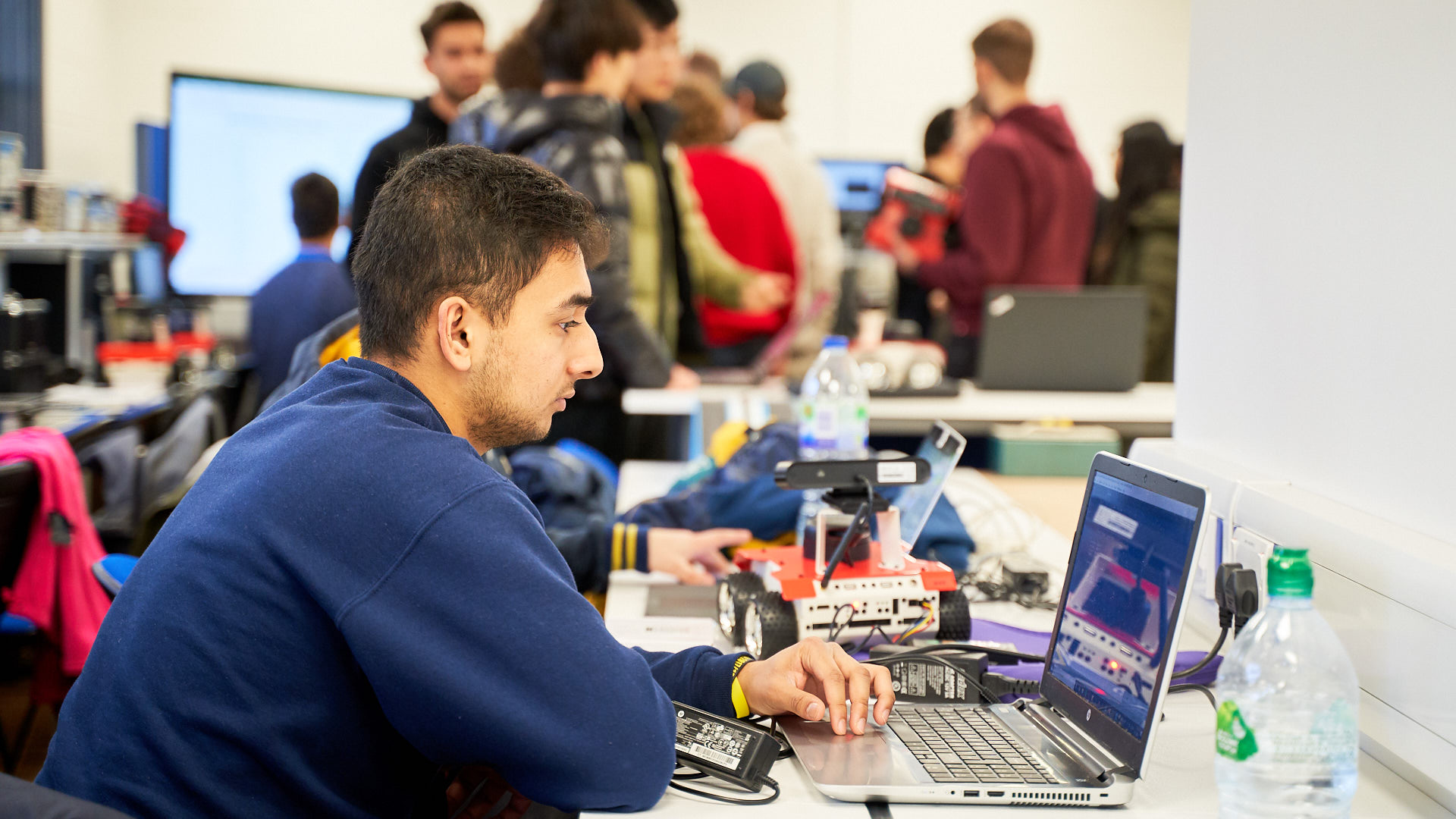I was a completely different person when I was 17. I wasn’t sure what university was about, other than it was the ‘done thing’. After looking at league tables and visiting the campus on Open Day, I accepted my offer to study for a BSc in Mathematical Sciences at the University of Bath.
Now, several years later, I’ve completed a master’s in Machine Learning and Autonomous Systems and I’m currently studying for a PhD in Accountable, Responsible and Transparent AI.
Why I chose to do a master’s
I learned to code as part of my undergraduate degree and realised it was something I really enjoyed. When I went home for the summer, I took some online courses to get better at coding. That’s how I came across machine learning.
The master’s in Machine Learning and Autonomous Systems really appealed to me. I realised there was nothing holding me back, apart from the money, so I got a job at a data science consultancy alongside my studies.
I didn’t look at other universities because I’d already experienced some of the computer science modules during my undergrad degree, so I knew I liked how it was taught. I love Bath and the sports here – I did martial arts, dodgeball, and a bit of salsa too. University is much more than just your studies. I used the year to pursue my interests, both academic and extracurricular.
Machine learning
The master’s was completely different to my undergrad degree. It was exciting to start learning something that I wanted to pursue as a career. I enjoyed doing more coursework and implementing some of the machine learning ideas you read about online. That was the main thing that I liked so much about it – that you can write some code on a computer and it does something real.
I took a module called Reinforcement Learning, which is essentially getting an artificial intelligence system to learn goal-directed behaviour through interaction with an environment. The system chooses an action, sees what happens, and learns how to act based on a feedback mechanism. It’s how babies learn to walk. This has the potential to apply to any task where you make decisions in sequence. The environment the system observes can be abstract, like business strategy, or realistic, such as an autonomous car.
Artificial intelligence is such a fascinating field. My supervisor told me about the PhD programme at Bath’s UKRI Centre for Doctoral Training in Accountable, Responsible and Transparent Artificial Intelligence (ART-AI) in 2019. It’s a fully-funded studentship, which means I can focus entirely on my research.
Accountable and transparent AI
One of the big problems with AI is transparency. The average person doesn’t know the extent to which AI is being used or what these intelligent systems are doing. A lot of the time, you can't see the reasoning behind the decisions they are making. For example, if an autonomous vehicle crashes and kills someone, it can be difficult to find out why this happened, whereas you can ask a human driver. The issue here is that the models aren’t explainable.
My research is looking at developing machine learning systems where you build a set of behaviours into a hierarchy, like LEGO blocks. In the case of the autonomous vehicle, you could then look at the higher-level behaviour of the hierarchy and see, for example, that it was trying to execute the behaviour ‘overtaking’ when it shouldn’t have. This is much better than trying to figure out what it was doing from a series of wheel turns and pedal pushes.
My initial plan was to go into industry, but I’m enjoying research so much that I might end up doing more. My postgraduate studies at Bath have helped me to develop as an independent researcher, with skills that will be widely applicable in industry and academia. I’m excited about the future and where it might take me.
